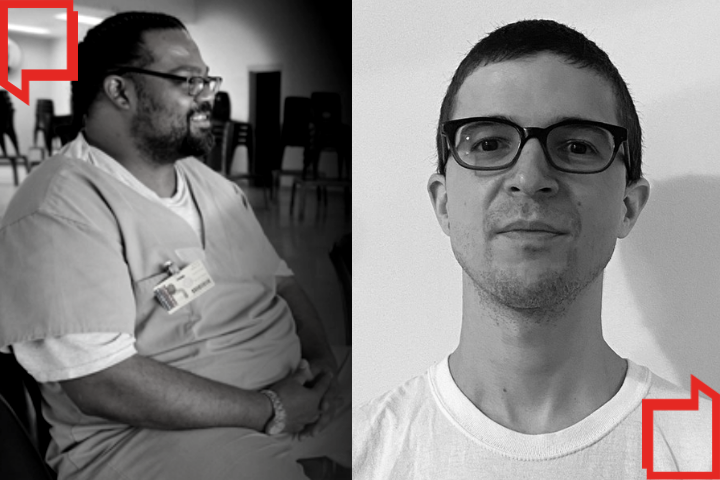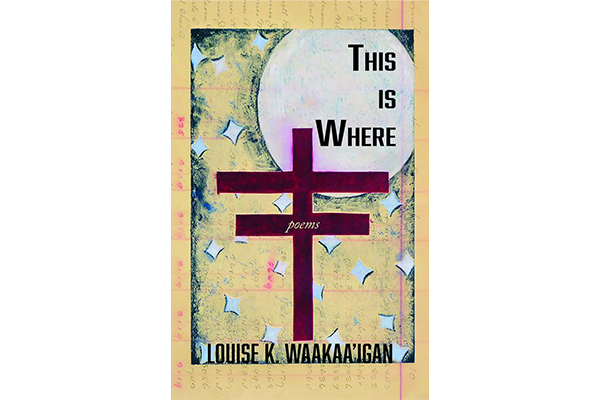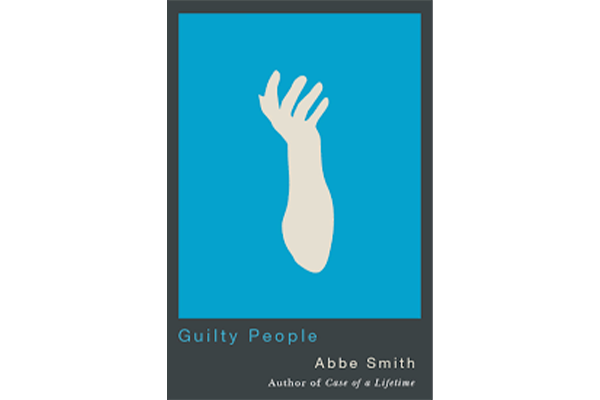Kevin Robert Schaeffer was awarded third place in Essay in the 2020 Prison Writing Contest.
Every year, hundreds of imprisoned people from around the country submit poetry, fiction, nonfiction, and dramatic works to PEN America’s Prison Writing Contest, one of the few outlets of free expression for the country’s incarcerated population.
This piece is also featured in Breathe Into the Ground, the 2020 Prison Writing Awards Anthology.
TARKOVSKY BY COUNTLIGHT
…What was it? Did it sprout from dream?
Was it culled from the urgings of some infectious Irish tongue?
So or otherwise in my troubled mind grew
the greatest yen of yens—STALKER.
I bided its televising with vigilance.
It was its own kind of prison.
Then it appeared in the program directory and I toiled late into night…
And, I suppose, that was the only thing to do…
Actually, I can no longer say, I can no longer say…
-From a recitation of drafts by the author, as heard through the vent to his cell
I. Concerning the Natural Continuity of Duration
How long have I been subsumed by monochrome?
Roused by the count bell, I slide off the top bunk, eyes shielded as my cellmate hits the light: a panel of long, slow-dying bulbs, three of them, which bathe the room in fluorescence. Colors exist here perhaps, but only in hiding. Chilled cell walls the sickly hue of thirdhand smoke. Bared of photos, art, strictly verboten. All the fixtures a dull brown, chipped and flaking, accented only by rust or water stains. And me, I’m shrouded in sweats (“cocoa brown” being their original commissary descriptor), faded from washings and essential for the raging A.C. of summer months. Even my skin falls somewhere between faux-jaundiced and recluse’s pale.
I check my wristwatch on the desk: 0618. Months from now, I still won’t be sure if it was all a mistake, this last-ditch, late-night endeavor for the sake of my flagging interests in film. But weeks back, when I came across the blurb in June’s Turner Classic Movies print-out, I resolved to make the effort:
Sunday 24 June 2018
2:15 AM Stalker (1979)
A guide leads two men through an area known as the Zone to a mysterious Room where dreams come true.
Dir: Andrei Tarkovsky
Cast: Alexander Kaidanovsky, Anatoly Solonitsin, N. Grinko
C-161 mins
It was a film I’d been waiting years to see, rooted in some inarticulable longing, and now I would finally experience it… today, tonight, technically tomorrow.
I’ll be thirty-one in less than two weeks, locked away nearly a decade now, and yet this old Me still holds on, maybe just by handfuls of cliff ledge, a single digit giving loose every few months or years–but there’s a desperation to it, this holding-on. Attachment is suffering, after all. Or rather, the misguided attempts to fix myself in time as I constantly change is suffering. All these years I’ve instinctively equated my identity with film theorist André Bazin’s view of cinema, namely that I was “objectivity in time,” “change mummified as it were,” preserved in college-aged hipster mindset, wide-eyed with intellectual and cultural wonder, development traumatically stalled by irreversible act. But if what I call my “Self” really is always changing, nothing more than a whirling cloud of aggregates, then it’s only natural that this austere landscape would wear away past pleasures. Force me to assume a prison-industrial veneer: man made monochrome, all stress and shame and sorrow. That holding-on—it’s just drawn-out denial.
Hoping to fall back to sleep until chow, I try to conjure some dreamy remnants of who I was, of the joy that gorging on films brought me as recently as a few years ago. Rapt, giddy, in a stupor of cinematic styles, I had fended off my environment: from 2012 to 2015, on TCM alone, I watched 1,059 of them. But a blandness has been creeping into my life. I can feel it. Maybe it started with my eyes, the constant soreness and pain and headaches that have mostly debilitated me over the past two years now, muddled my brain against any substantive intake. Obliged me to give up books, squirrel away my sparse ocular stamina for the sake of my writing. Or maybe it’s just the inevitable, Medusa-like shock of incarceration, of dwelling too deeply upon the natural continuity of duration.
Dukkha is a tricky word. Apparently it derives from the Aryan (i.e. Indo Iranian) term for having a poorly-aligned axle hole in one’s wagon wheel, resulting
in an uncomfortable journey. But nothing in English quite manages to capture its many subtleties. I’ve seen it expressed as “anguish,” “uneasiness,” “affliction,” plain old “suffering”–I prefer “dissatisfaction,” that inability to find contentment in even the simplest of life’s pleasures. Ah, in the sun it’s warm, but that is not enough…
I writhe beneath itchy wool blanket: Introspectionist! Other! Hadn’t I spent my life alone in cell-sized bedrooms? Wouldn’t it be a prison for me anywhere?
I make the short trudge to breakfast, brush my teeth, start the day. Routine rules all here. It’s the brace that lets me hobble about this cruel little world, pass through the glazed motions of existence: Count. Eat. Work out. Eat. Count. Write. TV. Count. Eat. Write. Count. TV. Sleep. Repeat. For those years of film-watching, I nobly flouted institutionalization, the programming of TCM not only keeping alive that old spark of Self, but actually allowing it to thrive. It felt almost subversive at the time, warping this rigid, joyless schedule to the whims of a cable channel–skipping meals, keeping an erratic sleep regimen and outright reclusive lifestyle, all punctuated by the mandatory standing counts of 0615, 1230, 1600, 2100…
Like most technologies of prison life, television has become a bit anachronistic, left in the virtual wake of the Outerworld’s fast-paced streamverse. No DVR, on-demand, personalized programming. Just as it was at the advent of broadcast television, the viewer must structure his day around what airs, not vice versa. Commercials, re-runs ad nauseam–these are the petits misères of every day, the costs of gazing into the glossy, scripted doings of the “Real.” Given my film studies back in college, my general cineastic urges, maybe it’s no surprise that I’d find in the wealth of uncut and otherwise inaccessible content of TCM an entrancing gem among our bland, forty-five-channel cable package–even if, for those on the East Coast, all of its best selections (e.g. the Sunday TCM Import features) are buried in deep late night, rarely playing before 0200 and often much later, or else strung together in punishing, borderline intolerably-long marathons.
And considering Russian director Andrei Tarkovsky (1932-1986) only produced seven films in his lifetime, it might not even be so remarkable that of my thousand-plus films a mere three–each in the ungodliest hours—had been Tarkovskys.
There was Ivan’s Childhood, my seventh and final indulgence amid an all day (and -night) Telluride Film Festival spotlight. (Hadn’t my cellmate at the time groggily awoken to piss as the room flashed with TV-life, just as Captain Kholin pursued the pretty army nurse through a wood of birches?)
A year later, I drifted and dozed through Solaris.
And then came Andrei Rublev, capping one of many exhausting all-nighters as part of Mark Cousins’ multi-month “Story of Film” program in 2013, the history of cinema narrated week by week in Cousins’ mesmeric Ballymena dialect, this particular episode on “New Directors, New Form (1965-1969)” touching on Tarkovsky, and accompanied in full by the only of his films I’d ever seen before, alone, on my laptop, back during some college break. My dreams were still speckled by scenes of bell-castings, of naked pagans fleeing morning-after Midsummer depravity.
Though I didn’t devote myself to the channel until early 2012, a few years into my sentence, as far as I religiously studied TCM’s programming guides I had never seen Stalker in any line-up. So whence its eerie draw? Its appearance now couldn’t be more ill-timed, that blurb turning up as it did after a precipitous wane in my interests in film and just about everything else. Here are the annual totals from my detailed film log:
2012: 272
2013: 468
2014: 213
2015: 106
2016: 40
2017: 29
As of mid-2018, it had been almost a year since I’d watched anything of value. And though about a fifth of the above films had played between midnight and sun-up, not since January ’17 had I attempted the grueling all-nighter–for a double (if doubly incongruous) feature of Altman’s Nashville and Cronenberg’s Scanners. In the end, all the late nights just got to be too exhausting, too meaningless. Part of me wonders if I could even handle it anymore. Not that staying awake for nearly twenty-four hours in itself is all that challenging, but staying awake to then watch a slow, subtitled Tarkovsky? Routine has become too rigid a master to sleep during the day. And the only other prophylactic measure available here would be to chug cup after cup of coffee to make it to curtain call.
Anyway, there was never much immediate fun in the task–that only came in retrospect, if at all, as I emerged from irritable, days-long disorientation to have some brief oomph of inspiration rush over me. Ah, inspiration. What a noble foil. More likely my film-watching was all an elaborate ruse to cope with the absurdity of my existence, employing those four “repressional mechanisms” of nihilist Peter Wessel Zapffe–isolation, anchoring, distraction, sublimation. Day after day, I told myself that the struggle was a worthy one, this mystical transmutation of otherwise wasted, State-regulated time into something positive, educational, mind-expanding, but clearly I made more out of the films than they really were, deluded by some zealous dedication that in reality meant nothing, that was a facade of lofty-for worse, merely pretentious–individuality, that was maybe, actually, pure indulgence, escapism, reaction to an immature and downright callous prison environment. An opiate of “culture.”
Woe is me! The ill-starred, intellectual con, who arguably shouldn’t even have the luxury of a television, who should be spending every second of every day in pensive sulk over his misdeeds, can’t watch all the snooty art films he wants without staying up past his bedtime! As if he has so many other important things to do! I get that. But every glimpse of the world (even a staged, diluted glimpse) can be painful, no less so for the recluse. Television is both a diversion and a reminder, a constant, reverberating presence of suffering. That crappy, overpriced 13″ flatscreen atop my locker, at standing eye level, directly across from the top bunk and never more than five feet from me, the one I remain tethered to throughout the day by long, staticky headphone cable–it’s the very life of the cell, infusing it with sound and vision. And since my eye troubles began, it’s stayed on for most of the day, my sole portal to that bizarre Outerworld, the irreal Real, my Zone, where anything might happen and where most often stalks that undying scourge: dukkha, dissatisfaction, disappointment.
Sitting on the desk, sipping a cup of lukewarm instant coffee to the mindless blather of talk shows, I spend the morning in contemplation, watching the roving bands of inmates at yard through my window. I resent their ability to laugh out there, their easy attitudes toward circumstance. A day’s worth weighed in push ups, bandit-hero yarns, found cigarette butts. How do they do it? Brings to mind the coldly utilitarian logic of John Stuart Mill:
It is indisputable that the being whose capacities for enjoyment are low, has the greatest chance of having them fully satisfied; and a highly endowed being will always feel that any happiness which he can look for, as the world is constitute, is imperfect.
Not to call myself “highly-endowed,” except maybe aspirationally. But take TCM: being unedited, uncensored, the only reason a lust-addled con watches it is for the slim hope of female nudity, even if the degree of that nudity is brief, fleeting, stimulating only in a not-really, pubescent way. Mill holds pleasures of the intellect intrinsically superior to physical ones, even when the former is accompanied by more discontent. But as I once experienced Contempt, for instance, as I relished Godard’s Brechtian tendencies, his stark palettes, the film’s broader historical context in the French New Wave, wasn’t I all the while incensed by those who watched only for the simpler, animalistic contentment embodied in Bardot’s pouty scowl and bare backside? Wasn’t my experience somehow spoiled, debased? Wasn’t I secretly envious? “Better to be Socrates dissatisfied than a fool satisfied”? I’m not so sure.
I used to think this was the ideal place for monk-like studies, reflection, artistic expression–but really there’s too much aggressive posturing against the Other, too stifling a dullness. Scoured raw of magic. Constricted by iron laws and insufferable boredom. An individual exists at his own risk, just as in any dystopic nightmare, with personal growth achieved only in utmost secrecy. Those years I spent squirming about in the interstices, I look back on them now with a hint of nostalgia–but they were never that pleasant, always stained as they were with the stigma of aloofness, the sooner-or-later, pit-of-stomach countdown to conformity. Eventually, I always rightly suspected, this place would transmogrify me. A devolution necessary for survival, fabled and far-off release.
A voice rings in my head, which would soon be reminiscent of Stalker’s wife: ‘What good are your silly movies doing you? Get a job! Be productive! That’s what parole would want–or will you tell them how much you’ve grown watching television for twenty-five years, flap your worthless manuscripts in their faces?! You need certificates! Progress reports! They want to see you’ve sweat and toiled for the sake of their machine!’
Around lunch, an idea: what if I were to write an account of the experience? Show the crushing lengths I’ve gone to for the sake of selfhood. Settle once and for all if this world really is one vast bore. By showtime, I’d be so invested in the project, having been powered through the day by the tweaking stimulant of creativity, that I’d be too ashamed to fall asleep or bail at the last minute.
Think something along the line of Tarkovsky’s own description of Stalker-as-character in his aptly-titled memoir, Sculpting in Time: the anti-hero passes through moments of despair when his faith in the endeavor is shaken, but eventually comes to a newfound sense of his true self (that is, a recognition that his idea of self is illusory and born of the ego). Or at least that’d be the goal, amid a mirrored film structure, classical unities, all the Tarkovskian trappings:
Tarkovsky by Countlight
A down-and-out con makes the long day’s journey into night to watch a mysterious Russian art film that might hold the cure to all his suffering.
B/w- x pgs
Main glitch: unlike all the films I watched for college papers—which is to say, watched over and over and over, carefully detailing every scene and image—in this case, I’ll have only one opportunity to view the film, relying on ephemeral and, as it will prove, quite distant impressions. I’ll need to compensate for this later, squinting through a ragtag stack of sources that’ll include:
- Wikipedia overviews, randomly-Googled articles, even the terse (and poorly-translated) screenplay, all mailed in months after the fact
- my trusty college textbook, Bordwell’s Film History: An Introduction, its note-scribbled margins unfazed by his brief mention of Stalker
- Geoff Dyer’s book-length study of the film, Zona: A Book about a Film about a Journey to a Room, which I’ll order via interlibrary loan—dropping the form in the institutional mail en route to dinner as extra guilt insurance for tonight—and comb through over several subsequent weeks, in time realizing that Dyer’s audacious premise for the book, and the reviews I had likely read of it back in ’12, were probably at least a partial inception point for my Stalker urge
In a way, it’s fitting that the film will come more alive for me on paper than through direct experience, as most prison experiences tend to occur via some shadowy, fourth-hand gnostic emanation echoing back to the original source. Like how, before my half-conscious, late-night lessons with Truffaut, Renoir, the Dardenne Brothers, I wasted years trying to teach myself French from a book, working out the strange nasally sounds from charts of mouth shapings and unintelligible phonetic symbols, never quite sure when, if ever, I’d gotten something right. Chinese Room, meet American Cell.
Most of life here—maybe everywhere—is waiting. Day passes, sun sets. My purpose, it seems, is to abide. I sit. Pace. Tinker with some stories. Watch cartoons, bits of Lifetime movies, some Bourdain re-runs. Already tired: I gaze intently upon the passage of time from Legs Up the Wall pose, recognizing this route from pilgrimages past. I listen to the somber, clunking cassette in my Walkman: a guided meditation on the 1,000-armed Chenresig. (“I confess all my negative actions since beginningless time.”) I doze half-heartedly, in TV trance, blather droning through my ear buds.
A few months from now, I’ll read of Dyer’s stance that Stalker—or anything of cinematic value, really—can’t even be viewed on a measly television screen, that it depends upon the sweeping vaultages, ineffable majesty of the darkened theater. It’ll remind me of a letter I got years ago, a friend telling me about a new projector he’d recently bought, his plans to host a Solaris viewing party in his apartment. I wrote back cautioning against it. I couldn’t imagine passing atop the film’s detached futuristic freeways with other people, let alone chasing down Hari incarnations through weathered space-station corridors. Granted, I’ve always preferred doing most things on my own, but I’d go even further to counter Dyer’s claim: not only can Stalker exist on a TV—it exists there in optimal form.
Can there be imagined a more authentic backdrop for Tarkovsky than a (nearly) solitary prison cell? Watching sleep-deprived in the dead of night– perched on the hard mattress of the top bunk for almost nine straight hours—wrought with discomforts, cramped legs and pin-tingly arms resituated in an array of awkward yogic poses—movements muted for the sake of sleeping cellmate tossing and snoring below—shivery from unforgiving A.C. and coffee-induced caffeine tremens, stomach otherwise grumbly and dispirited–startled by hourly probes of the C.o.’s flashlight square in the face–eyes achy from extensive skimming of subtitles, requiring regular drops and thumbings—earholes sore from crackly, raw plastic buds—sepia cellscape washed out by strobing televisual blue-light, suppressing melatonin production while viewed over the half-moon blurs of bifocals, arresting even my blinks…
While in such a state, I had often pictured myself as some performance artist at the Guggenheim or somewhere: bleak, three-walled void of cell, its lotused, blanket-swaddled habitant—his pale, sunken face obscured by State-issue specs—accentuated only by the captivating gleams from a screening, e.g., of Jeanne Dielman, a placard before the installation reading “Incarcerated Person of Today Watches Moody Art Cinema as Musing on the Post-Postmodern Condition.” Among my breathlessly huddled observers, a beat reporter from the New Yorker, scribbling in his little notepad: ‘Now this wretch watches Akerman!’ And as my spasmodic micronaps arouse gasps from the crowd, an effete hipster might add: ‘H-he’s inhuman. I heard yesterday he literally watched Antonioni all day!’
At 0200, the countlight sputters on, a small horseshoe-shaped tube embedded among the panel’s longer bulbs and controlled remotely from the officer’s desk. It snaps me out of broadcast ennui, saturates the cell in sobering realism. Surprisingly, in this place of utter structure, there’s technically no curfew, and night counts aren’t of the required-standing daytime variety. But I’ll be expected to have my feet planted on the floor at 0615, regardless of how much sleep I get throughout the night (and assuming I make it to film’s end, that amount will be little more than an hour). For now, though, there’s hardly any fuss at all—no bell, no commotion, just the light flickering alive at 2330, 0200, 0400 and some brief, scuffing bootfalls.
After the count, I notice just how subdued it really is tonight. The block is totally dark, gloriously calm. Of the hundred-twenty-some men housed on the unit, no one else seems to be awake, beyond a few cell-door windows flashing with rogue, insomniac TVs. There’s no shouting between cells, no fishing for contraband. No ignorant neighbors’ stereos seeping through walls into the weest hours. Out my thin, upright sliver of window lies the yard with its towering pale white lights, and then the double, wired fences, beyond which passes a perimeter car on some indeterminate schedule, its mounted searchlight sending sporadic, pane-shadowed prism slits rising and falling along the far cell wall.
Almost showtime.
Right on cue, a heavy fog settles over the prison grounds. No more sky, no more earth. Creation reverses toward void, a murky-white nothingness, yard lights suspended now like spectral orbs. TCM host Ben Mankiewicz introduces the film, offers a few production factoids. I perk up. Feel my chest pounding. Though my journey’s really only just beginning here, the next 161 minutes requiring the utmost mental focus, it strangely feels as if I’ve already accomplished what I intended: I’ve staked for myself the quietest place in the world. One last time, I’m where I belong.
Of all the emotions with which to begin a Tarkovsky film, elation has to be the worst. I’m sensing that my state of mind is all askew before the camera even finishes its ultra-slow ease through the cracked doors to Stalker’s apartment. As if on gliding tiptoe, breathless. Just…get… in there. Later, over and over, I’ll come across a tired anecdote about Tarkovsky’s response to criticism by the State Committee for Cinematography, its members urging a more exciting pace for the film, with the director arguing, to the contrary, that the beginning should be made even slower, more dull, to align with the realities of the rest of the work.
Average shot length (or ASL) is one of the basic cinemetrical measures, dividing the total length of a film by its number of shots. Figure that wholly unedited footage would transcribe time on a 1:1 ratio. So, theoretically, the longer a shot’s duration—the slower its pace, the grander and more titillating its suspense—the more aware a viewer is of the passage of represented time. Bazin, whose aesthetic was based on the idea of cinema recording real time, would have appreciated a director like Tarkovsky, who “represented concrete moment-to-moment life,” who actually considered time the very foundation of cinema. Stalker contains all of 142 shots over its 161 minutes, for an ASL of about 1 minute 8 seconds, though many shots crawl on for upward of four minutes. These relatively lengthy shots are then combined with what Bordwell describes as “hypnotic, achingly slow camera movements” to create a truly glacial film. Of the various descriptions of its pace I’ll later come across, I think Paul Stafford will capture it best, in a short overview printed out from somewhere on the internet: “gradual brooding intensity.”
In his films leading up to Stalker, Tarkovsky perfected this style of long takes and sparse cuts, a slowness aimed at facilitating real-time reflection by the viewer. Confronted with the indisputable drag of time, the viewer shapes the emptiness of the film with his own inner state. In this way, Tarkovsky sets up an invisible sieve about his films through which the content and the happy and the hope-bearing cannot pass. For aren’t the discontent, the miserable, the hopeless most primed for achingly slow reflection? And in that case, isn’t the resigned and reviled prisoner—aren’t I—the film’s ideal viewer?
Stalker is an ex-convict, unnamed, supposedly mutilated in some way by his travels in the Zone, living in abject squalor with his wife and daughter. His profession is an illegal one, guiding clients into the forbidden Zone to have their desires indulged by “the Room.” Threat of future conviction looms always about him, not to mention marital strife, poverty, the vague congenital mutations that are said to afflict his daughter—but he’s idealistic, almost spiritual, something about the Zone and its inscrutable promises drawing him back there again and again, a seemingly selfless desire (notwithstanding his small fee) to help others achieve what they desire most, stalkers being the only ones apparently capable of navigating the Zone’s zany existential hindrances.
He meets his clients at a bar. One is Writer, a nihilist and a drunkard, in search either of lost inspiration or confirmation that nothing in the world is inspiring after all. Another is Professor, a practical-minded physicist allegedly in search of knowledge about the Zone, but really (spoiler) intent on leveling the Room with a small nuclear device hauled about in his backpack, so that its powers can’t be exploited by future bad actors.
After a mildly-exciting evasion of patrols—which must have been the stretch Tarkovsky rightly feared to be anomalously fast-paced in the film’s front half (e.g. car chase, machine gun salvoes)—the trio boards a small motorized rail car for the mind-numbing, sepia-fade slog into the Zone.
Kneading the scalp beneath my zekkish Stalker’s buzz, I wonder if I’d even understand a single aspect of the plot without the luxury of that simplified TCM blurb. Stalker is hailed as a sci-fi masterpiece, but I’ll later learn that nearly all such elements were purged by Tarkovsky during various phases of production, having already drastically altered the story from its source material–the Strugatsky Brothers’ Roadside Picnic—Tarkovsky himself admitting that the film is only indebted to the novel for the terms “Stalker” and “Zone.” Many articles I’ll later read will muddle details from the film and novel so blatantly that I’ll be led to wonder if anyone besides Dyer has even managed to sit through the entire film before.
As for the Zone itself—a vast, uninhabited and sort-of sentient swath under military cordon—it’s possibly the result of an alien visitation, or else a meteorite, or what difference? Because it never really comes across as anything more than some vague Otherplace, nominally counter to Writer’s charges of rampant, worldwide dullness, and with scenes of travel there merely depicting three men blundering in fear and trembling about wind-tousled meadows and post-industrial Eastern Bloc wasteland, occasionally referencing Zonal tribulations that are otherwise lost on the viewer. In the man’s own words:
The Zone doesn’t symbolize anything, any more than anything else does in my films: the zone is a zone, it’s life, and as he makes his way across it a man may break down or he may come through. Whether he comes through depends on his own self-respect, and his capacity to distinguish between what matters and what is merely passing.
Arched in a disgruntled Half Boat as Professor fusses over his left-behind backpack, I’m faced with the possibility that I might have been better off letting this film remain forever coveted, unknown and unseen, my impressions bolstered by wildly misleading and sensational, culturally-overhashed synopses.
A hushed rumbling of pipes down the tier: someone has flushed their toilet.
Down in the shadowy corners of the cell, I sense it lurking.
Dissatisfaction. Even here it’s followed me. What had I expected—that this would be easy? A blast? “…and as he makes his way across it a man may break down or he may come through.” Ugh. I check the time on the TV: only 0323, wait…0324.
A single plunking drip from the sink faucet.
Dyer will later suggest that it’s unlikely for anyone to see their “greatest” film after thirty–that is, see a film that could so movingly expand one’s perception of the world as to endear it to the viewer forever—in which case, maybe Stalker was spoiled for me, through no real fault of my own, by the caprices of TCM’s programming, having sought it for an undetermined number of years, the thing growing stale up in the thinner and thinner atmosphere of its ever-rising pedestal.
A few distant years ago, I’m sure I would have been in awe of this film’s eerie premise and murky hues, its cryptic philosophizing—so what happened to me?
Was it an exhaustion of resource, brought about by intensive, filmic gluttony? Or is this what Zapffe would call an “anchoring spasm,” my once-sustaining motivations made meaningless, “spiritually insolvent” with time? Is this merely the natural cynicism of… (shudder) …almost-thirty-one? Or my new tumorous clump of incarceral aggregates, capable of stomaching only mindless network fare? Haven’t I found myself settling more and more for daytime drivel, ouroborian news cycles, the hundredth replay of the same old mass-market Hollywood rom-com or action flick? In the end, don’t I often simply sprawl in silence with a cold washrag over my eyes, concede to an early turn-in? Hasn’t dreaming become easiest?
My transient mind wonders what the Hollywood version of Stalker might look like, taken on by Nolan, Malick, Aronofsky… Or how about Neill Blomkamp? He’d be the type of flashy-yet-profound, mainstream auteur who could pull off such a bastardizing, shape it all into some parable of non-attachment, with the gist being that all desire, materialistic or otherwise, is an innate human flaw. We’d follow an oddly-toned Stalker (Idris Elba? The Rock?) as he leads an expedition of world weary Americans, fed up with their taxes and mortgages and gas price fluctuations, through the mysterious Holo, a residual footprint of alien conquest, in search of the hallowed and elusive Womb, a waking dream state imbued with even more vamped up lispy symbolism than the original—granting every conceivable subconscious longing of the traveler until he’s so glutted and sick of want that he’d stagger off in abstemious bliss. Fleeing lost love and his own dead-end corporate past, Stalker would navigate the group about the Holo’s gruesome tribulations, having found their number to include a pair of hardknock, tech-savvy street millenials from his slummish tenement, Vlogger and Alch3m!st, and while probably pursued by thickly-accented corporate mercenaries hoping to monetize the miracle-machine for personal gain, or something… Chopped up by so many hyperedits as to prevent any kind of irksome soul-searching. Expertly crafted to extinguish thoughts, not incubate them. Critical reception lukewarm. Now that’s a film I could be obliged to watch every other week for the rest of my life.
Sigh.
If only my mind wouldn’t always be plotting, champing to make something of all it consumes. Writer has the idea: “A man writes because he’s suffering, has doubts. He needs to prove all the time for himself and the people around him that he’s worth something.” But accepting that there’s nothing to prove to those around me, is it then to gain the Outerworld’s attention, prove to unseen (and unreachable) masses that I don’t belong here? Or is it really all just for my own sake? Some sad and self-flagellating affirmation of uniqueness? Could it be as easy as turning off the TV, rolling over, shooing off all these writing ambitions like I would a cloud of flies? It doesn’t matter. Because at this present moment, in Unhappy Baby pose and lulled by synth-strained flute and Azerbaijani tar, as Stalker and Writer work their way through some flooded drain pipe, all I can think about is how, a mere one channel down, on Lifetime, they’re showing Stalked by a Reality Star, and how a single, “accidental” brush of the remote could free me from this whole reflective, harrowing swath of wide-open time.
II. Concerning the Truth of the Cessation of Suffering
I’m stumbling through fog-shrouded yard, across the cracked pavement of quarter-mile track. Groping in headlong, graceless slow-motion. At the far bight, I prostrate myself by the depression where puddles rainwater, chaw spurts, geese droppings.
‘…and what is unhappiness? Whatever is mental pain, mental discomfort, painful uncomfortable feelings born of a stimulus of the mind: this is called unhappiness…’
In my monochrome reflection, I see Smokey, the shuddery black chihuahua my parents bought after I left for college. Dead years ago, he licks my hand.
‘…in beings subject to aging, sorrow, lamentation, unhappiness, distress… the wish arises: “0, may we not be subject to each of these, and may none of them come to us.” But this is not to be achieved through wishing…’
Dregs afloat: pages of manuscript, a whirling eye-drop bottle, a razor blade, a feather. Unable to move. I see now I’ve been turned to stone, fated to ponder for ages my shallow, puddled likeness, a likeness clouded as glass. With my last energy, I curl into an echo of Rodin’s obscure, never-finished Foetal Convict.
‘… empty is the world, because it is empty of self and what belongs to self. And what is empty of self and what belongs to self? The eye…visible forms…eye-consciousness…’
Stalker, lounging on the far shore: ‘Are you awake?’
Damn it all. I sit up, contorting in a resentful Marichi’s Twist. Later, with the help of the screenplay, I’ll estimate that I fell asleep somewhere between 72-84 minutes (c. 0329-0341), during an interlude in the plot when the characters unwind along some polluted watercourse to let the Zone settle a bit, each devolving into philosophical bickering amid a barrage of nonsensical imagery before—no wonder—actually nodding off themselves.
This whole breakdown of narrative into poetic nonsense is textbook Tarkovsky—literally textbook, drawing on Bordwell here: the son of a poet himself, Tarkovsky believed poetry to be one of the central forces of social life and worked to establish a cinema of “direct, evocative impressions.” He studied film in the early 1960s, just as the Khrushchev thaw opened the country to emerging Neorealist and New Wave trends, including the work of essential auteurs like Bergman, Bresson, Buñuel and Fellini. Because his films valued individual, artistic vision over the collective-minded Soviet orthodoxy, they would not fare well under the looming stodginess of Brezhnev.
A pattern will emerge in Bordwell’s descriptions of those pre-Stalker films:
- Ivan’s Childhood (1962): “unusual lyricism,” its poetic articulations resented by authorities
- Andrei Rublev (1966): “infused with […] mysteriously poetic imagery,” suppressed for six years
- Solaris (1972): “typically Tarkovskian […] passages of mystical contemplation”
- Mirror (1975): “poetic blend of childhood memories, documentary footage and fantastic imagery,” declared incomprehensible by authorities
Bordwell even cites Tarkovsky’s heir apparent Aleksandr Sokurov on the questionable influence of this style upon other directors: “It’s called Tarkovschina (the Tarkovsky syndrome)—to be great philosophers and make unwatchable films.”
In another random internet article, film writer Ewan Wilson will confirm my suspicions: “Tarkovsky’s Stalker is often discussed in terms of how ‘deep’ it is, how rich with existential meaning. But the director is notorious for insisting that his films hold no coded messages, that his art is a visual poetry which strives to convey emotion rather than meaning.”
Though Stalker’s often interpreted as a critical allegory of life under communism, part of me wonders if all the cinematic lore about reactionary individualist Tarkovsky bucking Soviet art-house prohibitions is pure myth. What if all of his films—and especially Stalker—were secretly made in support of Soviet foreign policy objectives in the coldest of Cold War ploys, with accounts of the ruffled artiste really ingenious propaganda designed to tug at hoity-toity Western heartstrings? What if he intentionally made films as slow, dull and broody as possible to overwhelm our ridiculous bourgeois pretensions, sink untold brainpower into parsing meaningless visuals?
Imagine the staggering potency of a film so boring that it literally cleansed its viewer of all desire—isn’t that sort of the gist of Stalker anyway? The dangerous lengths one will go to for a slim shot at grasping his deepest want? Possibly even a warning against desire itself—its deceptiveness, destructiveness, maddening complexity?
By 1982, maybe Tarkovsky had even made the ultimate play for credibility abroad: voluntary exile in Western Europe. Gone for good, would he have daydreamed of vindication in the Motherland, every snob from West Berlin to San Francisco emerging from theaters in glazed reflective states, drool spilling out their mouths, no longer concerned with the promotion of unsound democratic values, so faced inward as to barely even notice the Commies pouring Red-Dawn-like from their iron-curtained fastnesses?
Alright, I’m going…
Presently, the trio is passing through the infernal sewer system dubbed “the Meat Grinder” (really just another grubby, man-sized tunnel), which is apparently some kind of test for the travelers. I’m starting to suspect that I’ve failed Stalker’s larger overall test myself, as Dyer will explain it, the film serving as the measure of a viewer’s ability to appreciate high art. Have I toiled to survive “the challenging peaks of human achievement” only to curl up an hour below the summit, smothered by snow, gasping for breath and resolve? Tarkovsky, again:
I’m interested in a hero that goes on to the end despite everything. Because only such a person can claim victory. The dramatic form of my film is a token of my desire to express the struggle and the greatness of the human spirit.
It’s not unthinkable that my aptitude for appreciating art, or anything kind or moving or remotely beautiful, has been starved away by incarceral induration, by sight of the same concrete and browned-grass expanses, by subjection to inept and heartless policies, immature masses, absorption into this cold den of deprivation. My instinct at this moment, from this middling height, tells me that I will find no salvation waiting for me at the end. That, should I endure and scramble to its peak, I’ll be greeted by nothing more than the sun as it rises on another prison day.
Just now they’re emerging into a large hall covered with dunes. In his frazzled agitation, Writer’s seemingly made some Zonal faux pas, wandering ahead into this surreal, forbidden place. Stalker and Professor watch on, helpless, waiting in suspense for him to be swallowed up by some sandy caprice. A bird flies over the dunes, vanishes in mid-air, then remakes its full flight via jump cut. With halting (haunting?) familiarity, an alertness courses over me as I listen to Writer’s forlorn speech out there in the desert sprung from his own innermost turmoil, lamenting his trade’s thankless toils.
I’ve seen all of this before, maybe in a dream.
From an Oblique Lean, I distractedly watch them all pass on into the ruins of some abandoned laboratory. A telephone rings. As Professor’s confiding his catastrophic intentions for the Room to whichever colleague he’s hallucinated on the other end of the line, the countlight sputters on, and I’m tugged back to reality.
Squinty, uncomfortable, I take in my monochrome existence. A confined emptiness. Rank with farts and foul sink vapors. Hairline cracks through the icy walls. Down on the cement floor, stacks of books that I can no longer read. Folders of half-finished writing projects that will likely come to nothing. On the light panel, a faintly-etched swastika. My cellmate snorts awake, is back to sleep in seconds.
So maybe I’m not enjoying any of this—that…that doesn’t mean I can afford to give it all up! Everything beyond the fences is already taken from me. My happiness, my freedom, my dignity—everything’s here, enshrined in this lousy, overheated TV set. So what harm would it do if I held onto a little sliver of myself? Suffer through all this for the sake of some deluded sense of purpose? Otherwise, what would I be reduced to? Just another miserable, forgotten convict. Steeped in a petty brew of the Three Poisons for the rest of his miserable, forgotten life.
My stomach grumbles.
Of course I’m being rough on Tarkovsky, the artist once worthy of my admiration. But that’s who I am now. Bitter, closed-off. A stone man. Quarried and crudely chiselled. Stubbled with lichen. Eroded by time. He should have named this film Mirror, the stagnant pool that makes possible such troubling reflections.
Boots cross the tiers. Just before the two head-counting C.O.’s intersect at my door, I drop my chin, soften my face, feign sleep.
A struggle!
Stalker’s tussling with Writer and Professor over that backpack-smuggled bomb, there on the brackish, puddled threshold of the Room, desperate to save the Zone for himself and future clients, should there be any.
The Room, finally visible, has an appearance suggestive of its awesome power: dilapidated, swampy, filled with trash and rubble, rain trickling in through its caved ceiling. Here dwells disappointment.
Though it will never be resolved whether this place is anything more than mystical nonsense, a backstory has been forming for Stalker’s old mentor, Porcupine, which offers some insights into its operational logic. This man led his brother into the Zone, only to lose him amid the high-stakes scrutiny of the Meat Grinder. So Porcupine broke the cardinal rule of stalking and entered the Room himself. Back in the Outerworld, he became stupidly rich, but ended up hanging himself—assumedly because he staggered snivelling and grief-stricken into that tumbledown place begging for his brother and got only heaps of cash, his real innermost desire.
If Writer’s actually figured it out, and conscience is all brainwork, then
can one’s deepest longing ever be anything other than self-serving (or at least -preserving)—especially in a place like prison, where all ends are in some way an advancement of personal motives? Professor seeks to destroy the Room to protect the world from evil men exploiting its power, from orchestrating some cataclysmic event altering past, present or future, but wouldn’t all their deepest desires be as selfish and innocuous as the next person’s? Wouldn’t even the sociopath—or the saint, just as potentially problematic—want most of all, in the pit of his soul, a kind word, a hug from mother?
Later on, I’ll find that critical opinion varies on whether the Room’s
powers are even retroactive, whether they can change the past, raise the dead, though I think Tarkovsky saw no reason they couldn’t, at least in theory—else why have Porcupine, the “Teacher,” presume he could save his brother? Maybe there’s just no real risk of setting off this rippling mess of causality. Wouldn’t the past—its mistakes and failures, its transgressions, its crimes—feel too definitive and unalterable, too cemented in a person’s mind to be changed?
And anyway, what if all this talk of wishes is really some underhanded existential Macguffin? After all, Tarkovsky will admit (yet again) that dangling the promise of a granted desire works “solely as a pretext to revealing the personalities of the three protagonists,” namely their most genuine, most raw selves, measuring them against what Stalker describes as their “most secret wish,” “the most sincere one,” “the one achieved through the most suffering.”
So, say I stumble in there snivelling and grief-stricken myself, in the sincere and remorseful hope of undoing all the harm I’ve done so long ago… What most-secret wish would this strange place actually disappoint me with, hauled up from the self-(pre) serving depths of my being? I can rule out all the most obvious temptations as follies of the Outerworld: wealth, writerly glory, a huge wang. What good would they do me here? Even freedom feels too surreal and unattainable, like a childish whimsy to fly. I’ve been locked away nearly a third of my life now, with another eighteen or more to go. Having accepted that dullness and loneliness are the zonary limits of my future, what need have I for Outerworld desires? Prison is my only reality, and my concerns are institutional concerns, whether I like it or not.
Nested within my years-long need to see Stalker lingered each of desire’s three variants. Desire for sense pleasure: I hungered to experience a cinematic masterpiece, scoop up all its obscure meanings and references and make them my own. Desire to become: I yearned to transcend this intellectual wasteland, pass through a gauntlet where none of my peers could follow. Desire to get rid of: I wept and abased myself in order to push away those doubts of selfhood, clutch desperately to my identity, confirm for myself that all my past efforts hadn’t been utterly worthless. But this film is proof that grasping onto an object of desire is no guarantee of happiness, precipitating as it has this exhausting internal survey. Reminds me of those verses Henry VI wrote during one of his stints in prison, shaking a finger at those so desperate to remove him from power:
Who meaneth to remove the rock
Owst of the slimy mud
Shall mire himself, and hardly scape
The swelling of the flood.
Cause, effect. Want begetting want. Suffering, suffering. “Even as rain penetrates an ill-thatched house, so does desire penetrate an undeveloped mind.” There’s only one cure for desire: not to desire. Giving up the delusion that an object of desire can be possessed in any non-momentary way. Simply letting time wash over you frame by frame. Slumped in a wide-Angled Forward Bend here in the blue-tinged darkness, almost agonizingly self-aware by this point, part of me already knows what my real innermost desire would be.
It would be a swan-dive from the cliff-face of identity…
I want to conform. Devolve into stock prison persona. Unburden my mind. Forget the people and things I’ve loved and lost, the formative moments never to be known. Forget that any world even exists beyond the wire. Unlearn the impact of my actions. Forsake introspection. Sleep soundly. Bullshit about sports, women. Waste my dwindling vision on pinochle and Adam Sandler re-runs and large-print trade paperbacks. Endure TCM only for those seconds-long flashes of breast and bush. . Consume without criticizing, comparing, trying to possess. Without the gnawing itch to create. I want that low capacity for enjoyment that Mill talked about. Want to stop fending off this inevitable onslaught of aggregation. Become what I’m destined to become. Wake every morning and need nothing, want nothing, drift about moment to moment without any expectation. Any hope of something better. Any conception that something better is even possible. I want to be satisfied.
The fight’s over. Professor has dismantled his bomb, scattered its pieces about. They all just sit there, sopping wet and panting. No one enters the Room.
Maybe, in the end, it’s enough to slump on the threshold, catch one’s breath, having faced the truth that all things—pleasures, pains, epiphanies—work toward cessation.
Could my boredom with Stalker be evidence of a wish already granted, way back at curtain call? Tomorrow, so tired and cranky, saddled with days of sleep debt and cleansed of artistic ambitions, will my prayers have been answered? Could that sluggish haze really be…enlightenment?
Back at the bar, everyone seems broken—or unchanged? I wonder if it’s like this for Stalker every time: desires scorned, his mystique spoiled, clients reduced to a stoic lack of appreciation. Or was this all more grave, a turning point for him too? A sign that he shouldn’t go back. That it’s time to give up old nonsense. For now, that’s my takeaway. But who knows how my feelings will evolve as I parse its scenes on paper, just as they would for my old college papers. There’s something about picking apart the guts of an unenjoyable film, hyperanalyzing it to exhaustion, that sparks a fondness with time. Even Dyer will admit he’d been “slightly bored and unmoved” the first time he saw the thing.
At this present moment of disappointment, I haven’t yet realized that there’s no winning or losing with a film like Stalker. There’s no merit badge. No “getting it.” Tarkovsky and Bazin both felt the interpretation of a film should be left to its viewer, Tarkovsky even suggesting that the viewer’s role was vital in giving life to the work. Maybe it’s upon this multifaceted reflectivity that Stalker’s reputation lies, gathering up new meaning with every screening and broadcast, hundreds and thousands and millions of takeaways causing it to snowball over time into some truly incomprehensible, daunting masterpiece.
If the experience offers any semblance of prize, it’s a disturbing one. This subdued, uneasy and lasting recognition that I gazed upon its shimmering waters and saw all the misconceptions of who I thought myself to be. Saw…nothing at all.
Naturally, I won’t come to any of these revelations until months later, as I’m still slaving over this account, dissecting the film and its effects on me day after day, gratefully distracted and sustained, more damn introspective than ever.
***
Stalker heads home, accompanied by his wife and daughter. ‘You came back?’ she asks, incredulous. He’s emotional, worn out. If they only knew how tired we both were! A prison day is too tedious without the temporal edits of sleep. Eyes barely open, glasses heavy. She calms him down, puts him to bed, then looks straight out of the television, straight at me:
‘They said your life would be over here, that it would be all pain for you—and it has been, yes, in ways that no one could quite understand. But you carved a place for yourself. Admit it or not, you’ve known real happiness here—how many can say that? And so what if it’s all slipping through your fingers? You’ll move onto the next thing. Always something. Even if the something is nothing for a while. Impermanence can seem an unlikely concept in such a place as this, so consummately in stasis. That old adage the grizzled cons are always grumbling: “Here today, here tomorrow?” Well, you’ve already made it to tomorrow. That… doesn’t it mean something?’
From Verge-of-Death, Reclining-Buddha pose, blinking dry, painful blinks, I bear with a scene of their daughter sitting at the table in their apartment, reading more poetry. What else could need to happen here? End it already! Yet Dyer will call this an “all-redeeming” moment, not just for Stalker, but all film on the eternal cinematic continuum–and he just might be right, at least for me, and in regards to all the things I’ve seen in my life so far, my breath literally catching in my throat as she sets down the book, stares at a glass on the table, and pushes it—with her mind—over the edge. Then another. Another. Outside my window, the fog retreats from the yard, lifting, dispersing, and with it from my brow the fog of displeasure and wasted eye-consciousness, every “reality” marathon that was a bit too absorbing, every snail-paced art film that wasn’t quite absorbing enough.
And come to think of it, isn’t its mysterious draw tethered by some kind of…familiarity? I’ve seen this once before, too. I must have. Or else I’m already dreaming. Could it have been from…back during that “Story of Film” episode in 2013? Amid some montage of his images that Tarkovsky would have no doubt despised? At first, in my diminishing alertness, I’m left thinking that it was kind of shitty for Cousins to spoil this “all-redeeming” moment years before I saw the full film. But if this really is what I’ve been hankering after all this time, then in a way I’m indebted to him for this lifeline to my old Self, for this glimpse of something from the summit, however brief, in which I once found beauty, promise, hope…
An eye-drop tear courses down my cheek.
The moment is there, it’s gone.
Darkness is a balm. I doubt I’ll ever make it through Sculpting in Time with these eyes, though I’ll learn of Tarkovsky’s intentions for writing the book from its Wikipedia overview: having faced the maddening criticism, for years and years, that no one could quite understand what he was trying to do, he sought to bare insights into the nature of his films.
Later on, between all the random articles and subreddit print-outs, I’ll get the impression that people are especially stumped by Stalker’s ending (e.g. “I remember thinking the last shot was kind of irrelevant when compared with the rest of the film, plot-wise and thematically”), in early drafts even assuming myself that Tarkovsky merely intended it as a blunt refutation of Writer’s early quip—and mine—that the world is dull and fully without wonder, when in fact the truth had been right where this all started, anchored in the real-world austerity of Stalker’s apartment, encapsulated in his neglected freak of a daughter: this girl, pure magic, might as well have been shaking her head at me, forcing my lids closed with a disapproving glare, mouthing ‘Oh, ye of little faith!’
But later still, I won’t be so sure of my interpretation. After all, why would anyone gifted with awesome telekinetic powers slump her head down and absently push glasses from a table, except out of boredom? Every artist is a product of his environment, Wikipedia will summarize for Tarkovsky, of his time. Just as his inscrutable lyricism was met with fear and head-scratching in the Soviet Union, just as this cursory after thought of a character expends her gifts on parlor tricks, so I sublimate my reflections into an essay no one is ever likely to read.
The Buddha once said: “We are what we think. All that we are arises with our thoughts. With our thoughts, we make the world.” Sounds eerily similar to a traveler’s influence over the Zone. And yet the zone is just a zone, it’s life… Tarkovsky admitted that. It stands for anywhere, everywhere. Could this mean my very thoughts, my honed and whetted aggregates—aspirational, defeatist—have the power to transform this bleak confinement? Maybe Tarkovsky’s observation falls slightly short of truth: there will be products of circumstance, naturally, but then there will also be byproducts. There’ll be waste.
Barely an hour until the next count, half that till sun-up. Mere minutes before the jangly key pass of shift change. But suddenly I’m not all that tired, stretched out and clearing my mind–‘this is not mine, I am not this, this is not my Self’—as I will in turn each of the three fluorescent bulbs right above my bunk to flicker.
A bell rattles in the distance—and my name, mantra-like, over and over.











